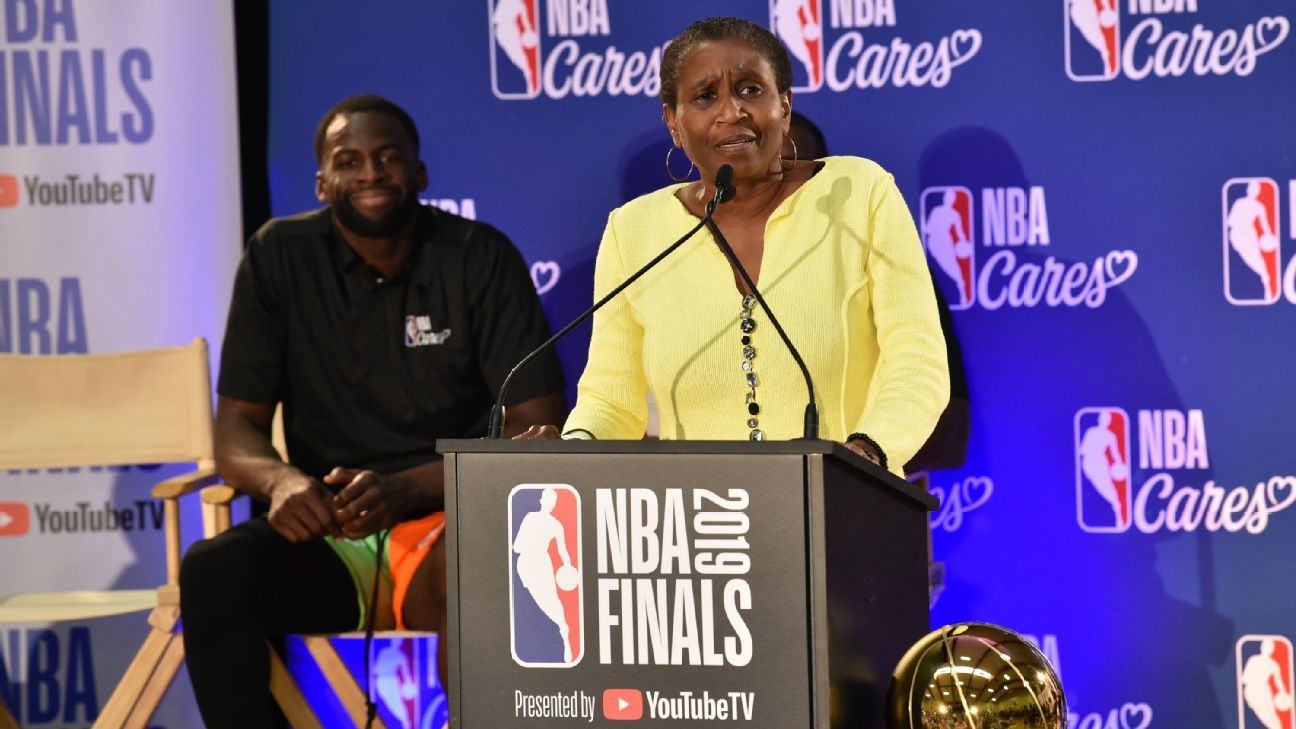NBA Players Association executive director Michele Roberts said she was “disappointed” in the criticism NBA teams and players have gotten from politicians such as New York City mayor Bill De Blasio for being tested for COVID-19.
“There’s nothing irresponsible — if you’ve got that information [that you’ve been exposed] — about trying to get the tests,” Roberts told ESPN on Wednesday.
“The problem that more of us can’t get the tests — and I’m not apologetic about saying it — in my view, that rests at the foot of the federal government. They were responsible for making sure we were protected in that regard and I think they failed.
“We shouldn’t be fighting about this now … but once this is done and we get through it, and we will, let’s figure out who screwed up and fix that.”
NBA commissioner Adam Silver told ESPN’s Rachel Nichols on Wednesday that eight teams had been tested since Utah center Rudy Gobert tested positive for COVID-19, and the league suspended its season last Wednesday.
The Brooklyn Nets disclosed that four of their players had tested positive for the virus on Tuesday. The Nets had not recently played the Jazz or Detroit Pistons (who’ve since confirmed a player tested positive) so it was not immediately clear why the Nets had all been tested.
The Nets said in a statement Wednesday that several players and staff were experiencing symptoms of COVID-19, prompting the team’s traveling party to get tested for the virus. The Nets said they “sourced the tests through a private company and paid for them ourselves because we did not want to impact access to CDC’s public resources.”
De Blasio blasted the team on Twitter and suggested NBA players were being given preferential treatment because they were rich and had access to better healthcare than the general population, where there has been frustration over testing protocols and availability.
“We wish them a speedy recovery,” De Blasio said in his tweet. “But, with all due respect, an entire NBA team should NOT get tested for COVID-19 while there are critically ill patients waiting to be tested. Tests should not be for the wealthy, but for the sick.”
Roberts said she understood the criticism but reiterated her criticism of how the government has handled the crisis.
“I get it,” Roberts said. “People should not be having to wait in line. The at-risk population should be the first to be tested. But goddammit, if the government had done what they were supposed to do, we wouldn’t be competing for an opportunity to be tested.”
Roberts said that public health officials have expressed concern about infected NBA players exposing others to the virus because of the high number of players they come in contact with and how much they travel.
“We were doing games where tens of thousands of people were coming into our arenas. We were exposing potentially a lot of people to being infected,” Roberts said. “I get it. If you’re 65 years old — I’m 64 — and you’re symptomatic and want to get tested, it must be difficult to hear about some youngins’ getting tested. I get that. And the players get that. But to the extent that there was some effort to find out just how pervasive our infection was so that people would know.
“To be perfectly candid with you, if I was at the arena in OKC when the announcement was made, when the game was cancelled, I would be concerned.
“In many ways, I think it would have been irresponsible for the teams not to test their players and staffers because people in that arena have the right to know if they’d been exposed.
Roberts said she has advised her players to report any symptoms of the virus to team officials if they come up. She is actively discouraging any stigma from being attached to players who might test positive.
“I’m distressed if any player is distressed about having his name out there,” she said. “There is no stigma attached to testing positive for corona virus. I’m probably positive for coronavirus if I’m tested. Most of us will. I’m now hearing 50 percent of the population is probably going to be infected. We need to stop being concerned about there being some stigma about being infected — ‘Oh my god, he’s got the ‘rona.'”
“That’s nonsense to worry about that. We need to worry about how we can contain it. My message to the players is, ‘Don’t for one second be embarrassed about it. There’s nothing embarrassing about it. This is not something that suggests you’ve done anything wrong. If you have it, now you know you need to be more careful in terms of your interactions.”
